Imagine buying a house only to realize after closing that it needs a new roof. If you’d known that, you might not have purchased the house (or you would have known to negotiate with the seller).
A home inspector’s job is to uncover potential pitfalls and issues with a house so you are well-informed before buying it. But a lot goes into the construction of a house (and therefore, a lot can go wrong). Having a good home inspector makes all the difference between finding your dream home and getting stuck in a money pit without preparing for it.
Finding a home inspector you can trust might not be first on your mind when purchasing a new home, but it’s an important decision that can make or break your home buying experience.
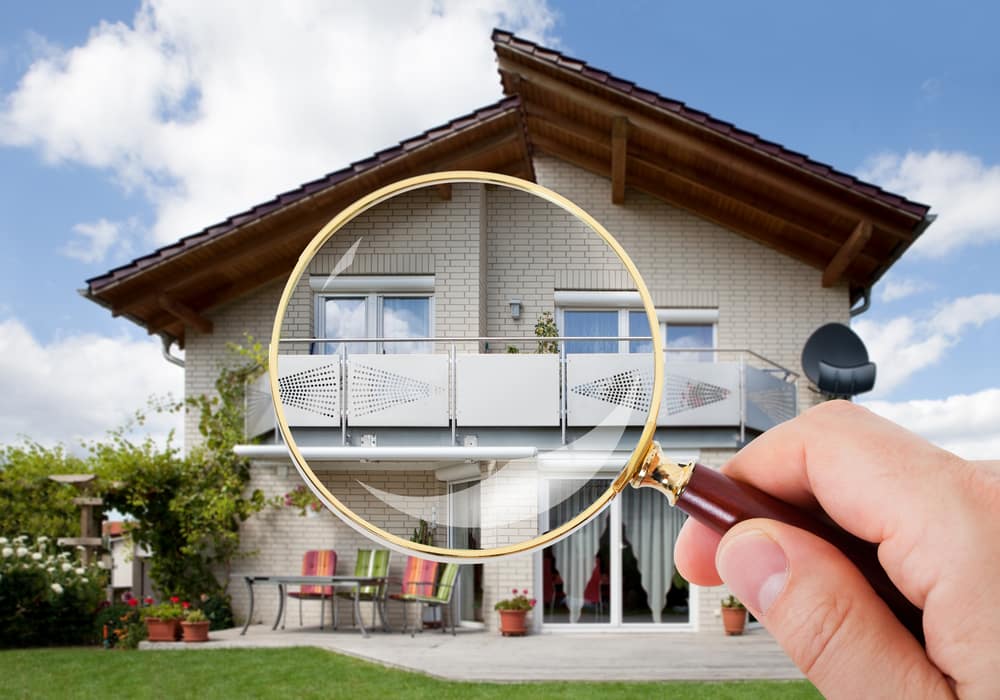
How to Find a Home Inspector
When it’s time to hire a home inspector, it’s important to first know where to look.
Family and Friends
Asking your family and friends for recommendations is a good way to get a trusted, first-hand account of a home inspector’s work, manner, and communication skills before you hire them.
Industry Experts
Ask for recommendations from your mortgage lender, real estate agent, insurance agent, and other professionals that you’ve been working with during the home buying process. They work with home inspectors day-in and day-out, so they know which ones to use (and which to avoid).
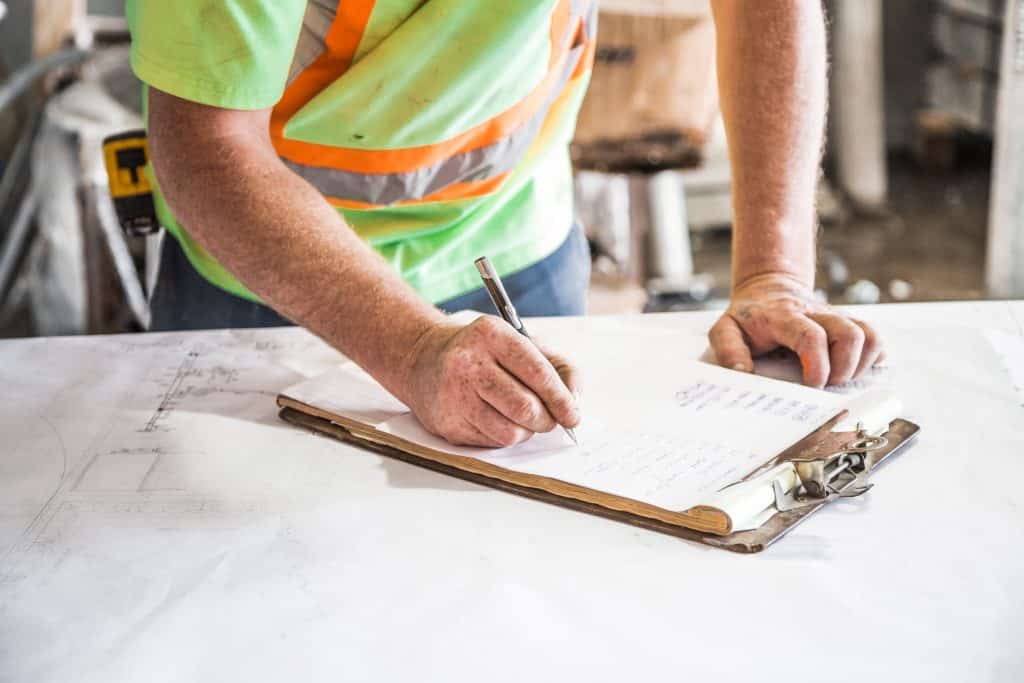
Realtors sometimes have lists of inspectors they don’t want to work with. My advice: listen to them. The inspector is usually on that list for a good reason. In my opinion, if you can’t trust your realtor (or your home inspector), you should get a new one.
Online Directories
Online directories like Angie’s List, Home Advisor, and Yelp can be good resources for any service provider, but don’t take them at face value. Many of these sites show preference to the businesses that pay them, putting them higher up in the search results without checking their qualifications. Make sure you get a second opinion from…
Better Business Bureau (BBB)
Before you pick up the phone to talk to a single inspector, look them up on the BBB’s website to see if there have been any complaints. If a home inspector is fraudulent or simply offers poor-quality work, it will likely be reflected in a review or complaint.
Interview Home Inspectors
If you don’t want to be reliant on the other sources, go straight to the source yourself. There are certain questions to ask an inspector when buying a house that can be useful in deciding just who you should hire. Get a list of what they check for and compare it with other inspector’s list. See which one seems more thorough and go from there.
Top 10 Questions to Ask Your Home Inspector
This is by no means an exhaustive list, and you might have other questions come to mind as you are talking with them. Ask them any question that comes to mind. The more information you can get from the conversation, the more comfortable you’ll be.
Here are 10 questions to ask a home inspector before you hire them.
1. What was your education?
It used to be that an inspector needed a certain amount of hours in the field to get a home inspector’s license. Nowadays, anyone can get their education online without ever leaving their house.
Obviously, this doesn’t mean that every home inspector out there is terrible. Far from it. But knowing the type of education that a home inspector received will be helpful when making your final decision.
2. What is your experience?
This is one of the most important questions to ask a potential home inspector. A more experienced home inspector will know what to look for because they’ve seen it all. If someone’s just recently received their license and started their own business, your house might be the first one they’ve inspected.
Ask about their experience inspecting homes in Florida as well. Florida buildings are built differently and exposed to different elements that homes in New England, for example. An inspector who is used to inspecting homes in Vermont might be more accustomed to thinking about snow than mold and hurricanes.
3. Are you certified? Are you a Master Inspector?
To become a Master Inspector, you first need at least three years’ experience and 1,000 inspections under your belt. Then, a peer review board will award you with the Master Inspector title.
A “no” isn’t necessarily a bad answer. But if you are choosing between two equally promising inspectors, it might help you to decide between them.
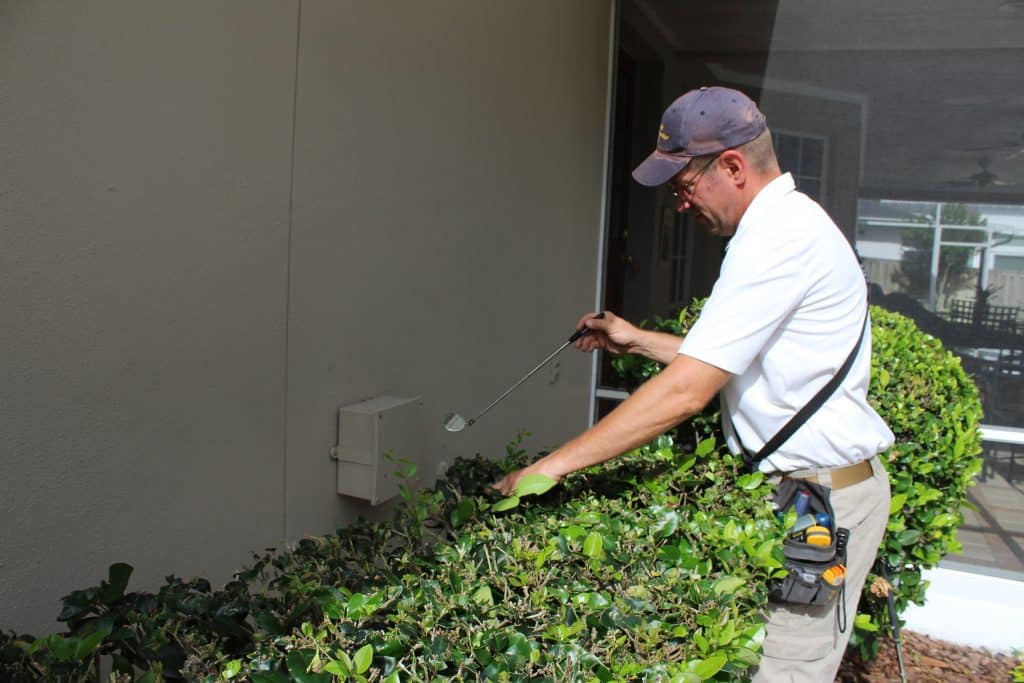
4. Is this your full-time job?
There are roughly 12,000 licensed home inspectors in the state of Florida. Only 40% of those are actively working as inspectors and only 20% of those do it full-time. That’s less than 1,000 inspectors in the state.
Someone who only does inspections on the side probably won’t have the same level of experience as a full-time home inspector. Another way of finding out is to ask, “How many inspections do you do a year?”
Again, there’s nothing inherently wrong with hiring a part-time inspector, but knowing a little more about their experience is pertinent information that helps with decision-making.
5. If you find something wrong in the house, can you fix it?
It seems so convenient to hire a “one-stop shop” to both identify and repair issues in a home. But electricians, plumbers, and contractors who inspect on the side might simply be trying to feed into their “real” business. It could be a red flag! Conversely, what if they miss a major issue and you buy the house anyway? What if they find something wrong with the water heater, air conditioning unit, or worse yet, wood destroying organisms? Do they offer any warranties on the quality of their work? Are they available to return and explain things that weren’t in their report?
If they answer “yes,” that’s a tip-off that they might find more things “wrong” with the house so they can get more money out of you. It’s best to hire separate inspector and contractor, so there’s no conflict of interest.
6. What do you look for? What additional services do you provide?
The Florida Standards of Practice lists the minimum that all inspectors should be checking for, but this doesn’t mean that all inspectors have the same checklist. Some companies hold themselves to higher standards and include more in their standard inspection checklist.
According to the Standards of Practice, an inspector is not required to look for mold, pest infestations, or environmental hazards (lead paint, etc). If any of these features is important to you, you may want to go with the inspector that has a more exhaustive checklist.
Florida homeowners will definitely want a wind mitigation inspection to make sure they are protected in the event of a hurricane. (It’ll also get you an insurance discount.) Also ask whether your inspector performs inspections for wood destroying organisms, mold, radon, air quality, pools, etc. Being able to get all of your inspections done at once saves you time and money in the long run.
Don’t forget to ask if there are any ancillary inspections they need to subcontract out. If a home inspector uses a subcontractor, you’ll want to check that company’s Better Business Bureau listing to make sure they are reputable as well.
7. Are you licensed and insured? What types of insurance do you carry?
Licenses are required in the state of Florida, and any reputable inspector should be able to provide you with one. Hiring an unlicensed inspector is just as risky as hiring an unlicensed contractor; you have no idea if you can trust their work.
In the state of Florida, inspectors are required to have a minimum of $300,000 general liability insurance, but most reputable inspectors carry more. In addition, it’s also nice for an inspector to have errors & omissions (E&O) coverage, in the event that they miss something that leads to damage later on.
While E&O insurance isn’t a requirement for Florida home inspectors, it is an extra level of coverage that can give you peace of mind.
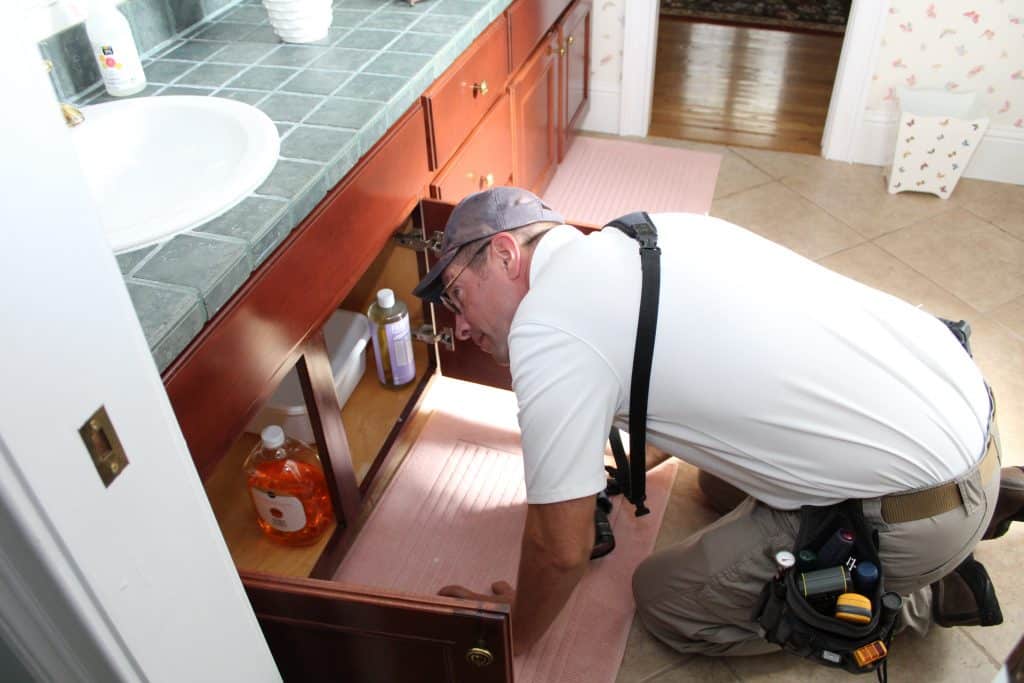
8. What are your views on…?
Home inspecting is a very specialized business, so it helps to know that you’re not having the wool pulled over your eyes by a shady inspector. These are pretty loaded questions, but they test the inspector’s knowledge for you.
…radon testing? In our opinion, radon is not a concern in Central Florida, but an inspector might try to push radon testing as an unneeded add-on. (If it still concerns you, you can do a test yourself for as little as $15.)
…polybutylene pipes? Polybutylene pipes were common through the ’70s, but are no longer used, as they can be prone to leaks. Even if a home has not leaked in 30 years, most insurance companies will not cover you if you have polybutylene plumbing. Your home inspector should know this, so if you are advised that your polybutylene plumbing is fine and doesn’t have to be replaced, you should be skeptical of your inspector’s advice.
…working with realtors? My view is that realtors are the most important person in the homebuying process. Their job is to help you find the perfect house for you…not even a home inspector can tell you whether you should buy a certain house or not.
9. Can you send me a sample inspection report?
The inspection report will be ultimately be your guide when deciding whether a home is a good investment or not, so it’s important that you can understand it.
Gather a sample inspection report from each of the inspectors on your list, so you can see how the information organized and how comprehensive it is.
10. Do you offer any warranties?
You will find that many home inspectors do not offer any warranties on their work after you move into your home.
This is their right; there is no requirement to provide warranties. However, a few weeks may pass and the water heater fails, the A/C unit stops working, or the roof begins to leak. What do you do now?
The inspector is only there for 2-3 hours and may not find all the deficiencies. Think of an inspection as a snapshot of your home. It’s only accurate for the time it was conducted, and conditions can change. EDC Professional Home Inspections provides several warranties that cover not only the inspection, including a free 100-day warranty on every inspection. Read more about our warranty provisions here.
Conclusion
When buying or selling a home, it’s important to trust the experts that you’re working with, including your home inspector. Don’t be afraid to advocate for yourself and ask your important questions about your potential home.
When asking questions that invite a home inspector to compare themselves to others in the industry, listen for negative views about their competition or about services they don’t offer. We understand that others have different ideas than we do and respect your decision, as the homeowner, to go with whoever makes you feel the most comfortable. But it can be eye-opening to hear how much certain companies badmouth their competition.
In fact, if you tell us that you don’t trust us to complete the inspection (or if we found something right away that made you want to back out of the contract), we’ll walk off without even finishing the inspection. That’s how much we believe in your right to be comfortable with your home service vendors.
Knowing the right questions to ask your home inspector before you hire them helps to create and build that trust so that you feel comfortable and at ease throughout the home buying (or selling) process.
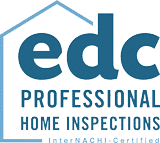

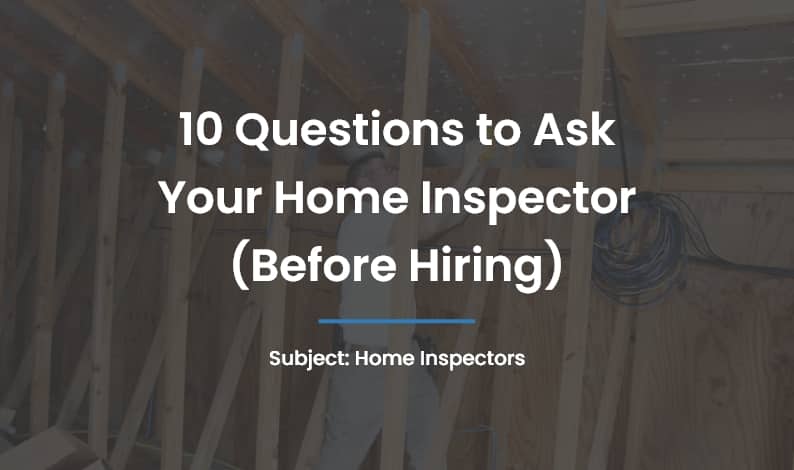
5 Comments
Thank you very informative!
You’re very welcome. Happy to help.
As a licensed Home Inspector this was well written and fair. Most of the time when I read articles like this subject the writer has only a vague idea of what they are talking about.
Larry Smyj,
Aurora Home Inspections
Thanks Larry, This is a pretty standard subject buyers want to know about. The advise is usually provided by the Realtor. So it’s always good to get the perspective from a Home Inspector.
It really helped when you said that home inspections are done so we’d be aware of potential pitfalls and issues of the property before we buy it. As a buyer, I definitely don’t want to spend money on a house filled with plumbing and electrical issues. I’ll surely hire an expert in infrared home inspections once I found a property worth buying.